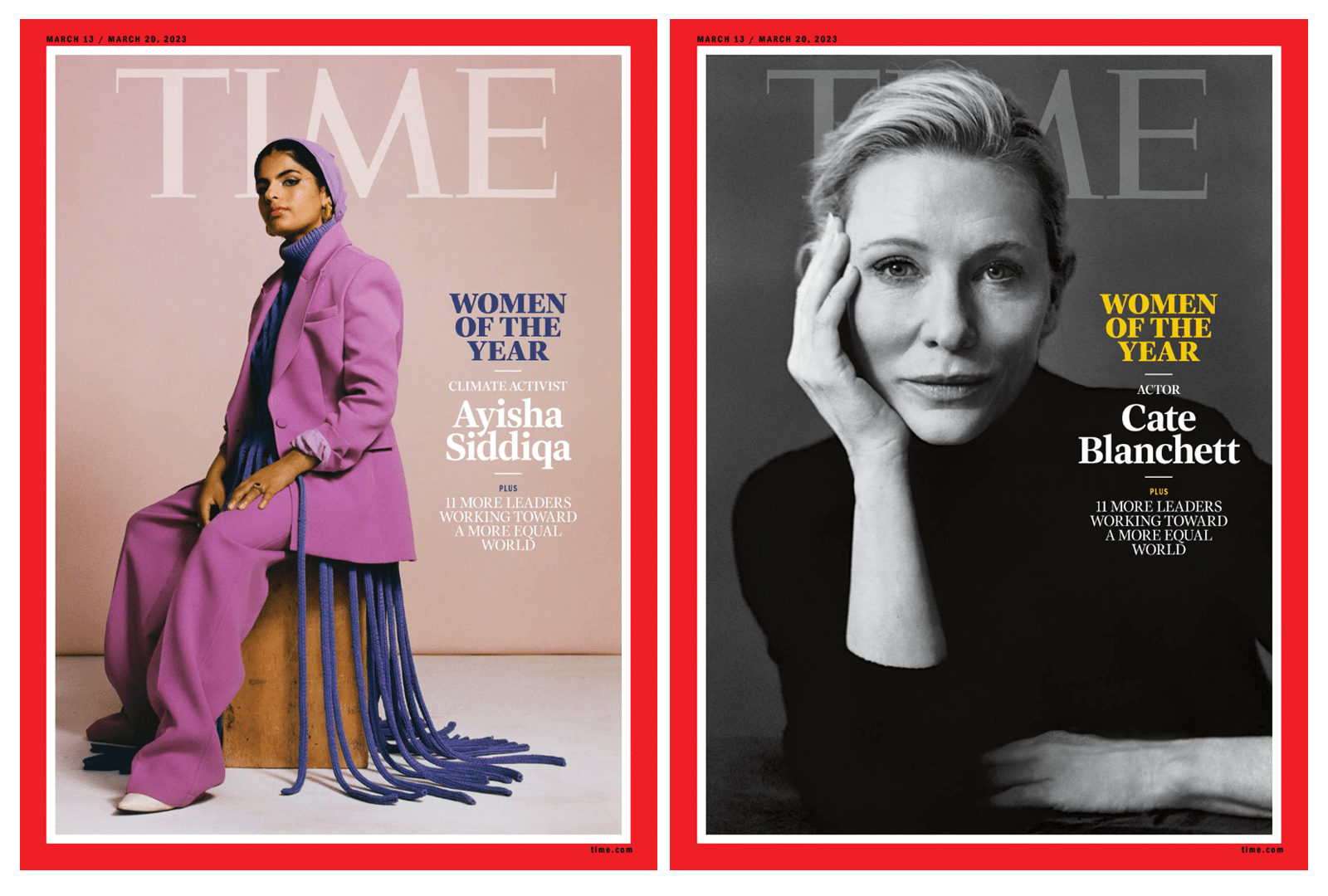
A defining project at TIME is the study of influence—who has it, what form it takes, and what it means to wield it. Our annual Women of the Year list, published on March 2, examines the most uplifting form of influence by spotlighting leaders who are using their voices to fight for a more equal world.
The 12 women featured on this year’s list come from across the globe and have made significant impact in their respective communities and fields, from activism and government to sports and the arts. Many of them have faced immense challenges that inspired them to push for change. Anielle Franco turned to politics after her sister Marielle, a city councilor in Rio de Janeiro who campaigned against police violence and corruption, was assassinated in 2018. Now, as Minister for Racial Equality in Brazil’s new government, she is channeling her grief into action. “I lost my fear when they killed my sister,” Franco says. “Now I fight for something much bigger than myself.”
Leaders around the world are doing the same. In Iran, women have been protesting for months against the mandatory hijab—and much more—in a profound threat to the regime led by Ayatollah Khamenei. “Women of Iran are his biggest enemy,” says Masih Alinejad, a journalist who has lived in exile in the U.S. since 2009. After exposing corruption in her home country, she has been the target of at least two regime-backed kidnapping and assassination plots. Still, she refuses to stay silent.
In Ukraine, where Olena Shevchenko has spent years advocating for women’s and LGBTQI rights, Russia’s war has made marginalized groups even more vulnerable and Shevchenko’s work all the more urgent. In Pakistan, Ayisha Siddiqa, who appears on one of our covers, saw the devastating effects of climate change on her community and was inspired to speak up, delivering a powerful speech at November’s U.N. Climate Conference in Egypt on the urgency of climate justice. In Mexico, the feminist activist Véronica Cruz Sánchez has long helped women safely navigate abortion restrictions and is now turning her attention north, supporting American women affected by the overturning of Roe v. Wade last summer.
Cruz is not the only leader on this year’s Women of the Year list who is advocating abortion rights: indie-rock musician Phoebe Bridgers, who has long blended her art with activism, came forward last year to share that she’d had an abortion. In an interview, she spoke about the value of transparency, a key aspect of her songwriting. “The more honest I am,” she says, “the world just keeps opening up for me.”
Also making a difference in the arts is actor Cate Blanchett, one of this year’s cover stars and a 2023 Academy Award nominee, who unpacks the ways in which she, as a leader in Hollywood, is fighting for change. Blanchett’s prowess in front of the camera is itself a testament to the multitudes that women contain. As Lydia Tár, the eponymous protagonist of one of the year’s most celebrated films, Blanchett is both spectacular and reprehensible. “We are brave, we are noble, we are generous, we are collaborative,” Blanchett says. “But we are also the dark side of that, because women are complex beings.”
Blanchett, Bridgers, Siddiqa, and many more will join us on March 8, International Women’s Day, for our annual Women of the Year gala in Los Angeles. We’re thrilled to be able to convene such inspiring leaders, to celebrate their visions for a better future, and to highlight the remarkable influence that these women have on the world.
More Must-Reads from TIME
- Donald Trump Is TIME's 2024 Person of the Year
- Why We Chose Trump as Person of the Year
- Is Intermittent Fasting Good or Bad for You?
- The 100 Must-Read Books of 2024
- The 20 Best Christmas TV Episodes
- Column: If Optimism Feels Ridiculous Now, Try Hope
- The Future of Climate Action Is Trade Policy
- Merle Bombardieri Is Helping People Make the Baby Decision
Write to Naina Bajekal at naina.bajekal@time.com and Lucy Feldman at lucy.feldman@time.com